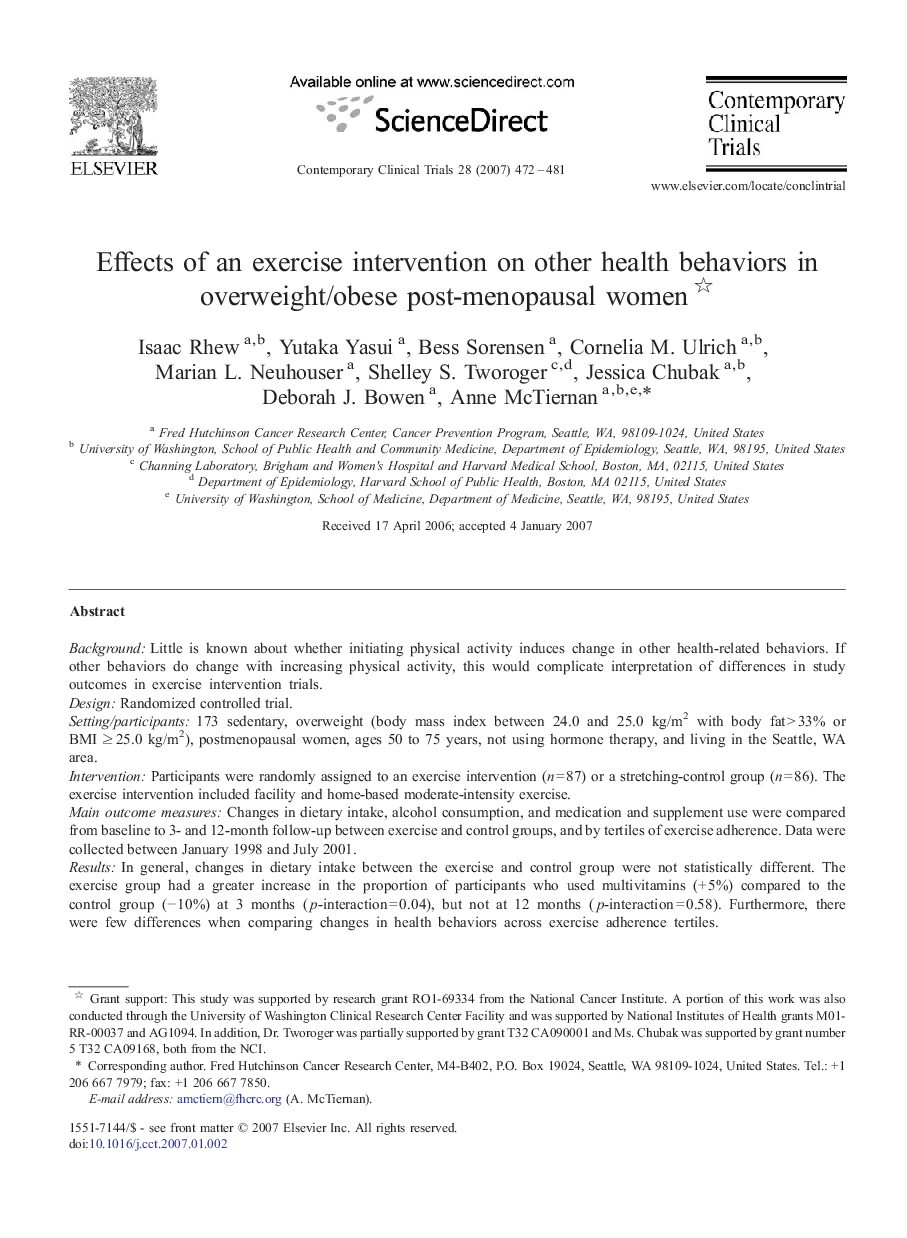| Article ID | Journal | Published Year | Pages | File Type |
|---|---|---|---|---|
| 3463480 | Contemporary Clinical Trials | 2007 | 10 Pages |
BackgroundLittle is known about whether initiating physical activity induces change in other health-related behaviors. If other behaviors do change with increasing physical activity, this would complicate interpretation of differences in study outcomes in exercise intervention trials.DesignRandomized controlled trial.Setting/participants173 sedentary, overweight (body mass index between 24.0 and 25.0 kg/m2 with body fat > 33% or BMI ≥ 25.0 kg/m2), postmenopausal women, ages 50 to 75 years, not using hormone therapy, and living in the Seattle, WA area.InterventionParticipants were randomly assigned to an exercise intervention (n = 87) or a stretching-control group (n = 86). The exercise intervention included facility and home-based moderate-intensity exercise.Main outcome measuresChanges in dietary intake, alcohol consumption, and medication and supplement use were compared from baseline to 3- and 12-month follow-up between exercise and control groups, and by tertiles of exercise adherence. Data were collected between January 1998 and July 2001.ResultsIn general, changes in dietary intake between the exercise and control group were not statistically different. The exercise group had a greater increase in the proportion of participants who used multivitamins (+ 5%) compared to the control group (− 10%) at 3 months (p-interaction = 0.04), but not at 12 months (p-interaction = 0.58). Furthermore, there were few differences when comparing changes in health behaviors across exercise adherence tertiles.ConclusionsOur results suggest that participation in a year-long exercise intervention trial among post-menopausal women has little effect on other health behaviors. These findings suggest that additional behavior changes in exercise trials are minimal and unlikely to bias primary study results.
